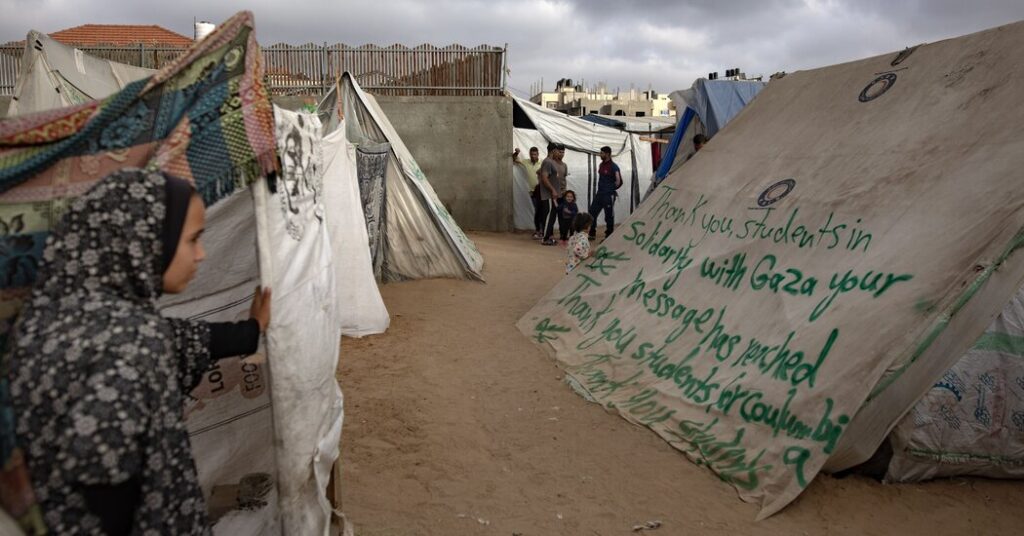Thousands of miles away from the campus protests that have divided Americans, some displaced Palestinians have expressed solidarity with anti-war demonstrators and thanked them for their efforts.
Messages of support were written on some tents in the southern city of Rafah, where about a million displaced people have sought refuge from Israeli bombing and ground fighting that Gaza health officials say have killed more than 34,000 people .
“Thank you, American University,” read one message captured on video by Reuters. “Thank you, students of solidarity with Gaza, your message has reached us,” read another nearby.
Tensions are rising on campuses across the United States, with police in riot gear arresting dozens of people at Columbia University on Tuesday night and police across the country clashing with pro-Palestinian demonstrators who have set up encampments and occupied buildings at other institutions. Academic buildings. Protesters have been calling on universities to divest from companies with ties to Israel, and some have vowed not to back down.
The protests come at a particularly dire moment for Rafah, with Israeli Prime Minister Benjamin Netanyahu vowing to launch a ground invasion of the city to root out Hamas forces there, although there is a glimmer of hope for a temporary ceasefire.
Mohammed al-Baradei, 24, said in a telephone interview from Rafah that Palestinians were “happy that there are still people with us.”
“The special thing is that this is happening in the United States, where people are still aware of this and there is a growing awareness of the Palestinian cause,” he added.
Gazans “watch the student movement in the United States with hope and gratitude,” said Akram al-Satri, a 47-year-old freelance journalist who has taken refuge in Rafah.
“This is a glimmer of hope for us at the national level,” he added in a voice message on Wednesday.
Bisan Owda, a 25-year-old Palestinian who has been documenting the war on social media, said in a video posted to her more than 4.5 million Instagram followers that the campus protests had given her new possibilities.
“I have lived in the Gaza Strip all my life and I have never felt more hopeful than I do now,” Ms. Auda said.
Nader Ibrahim London provided reporting and video production.

